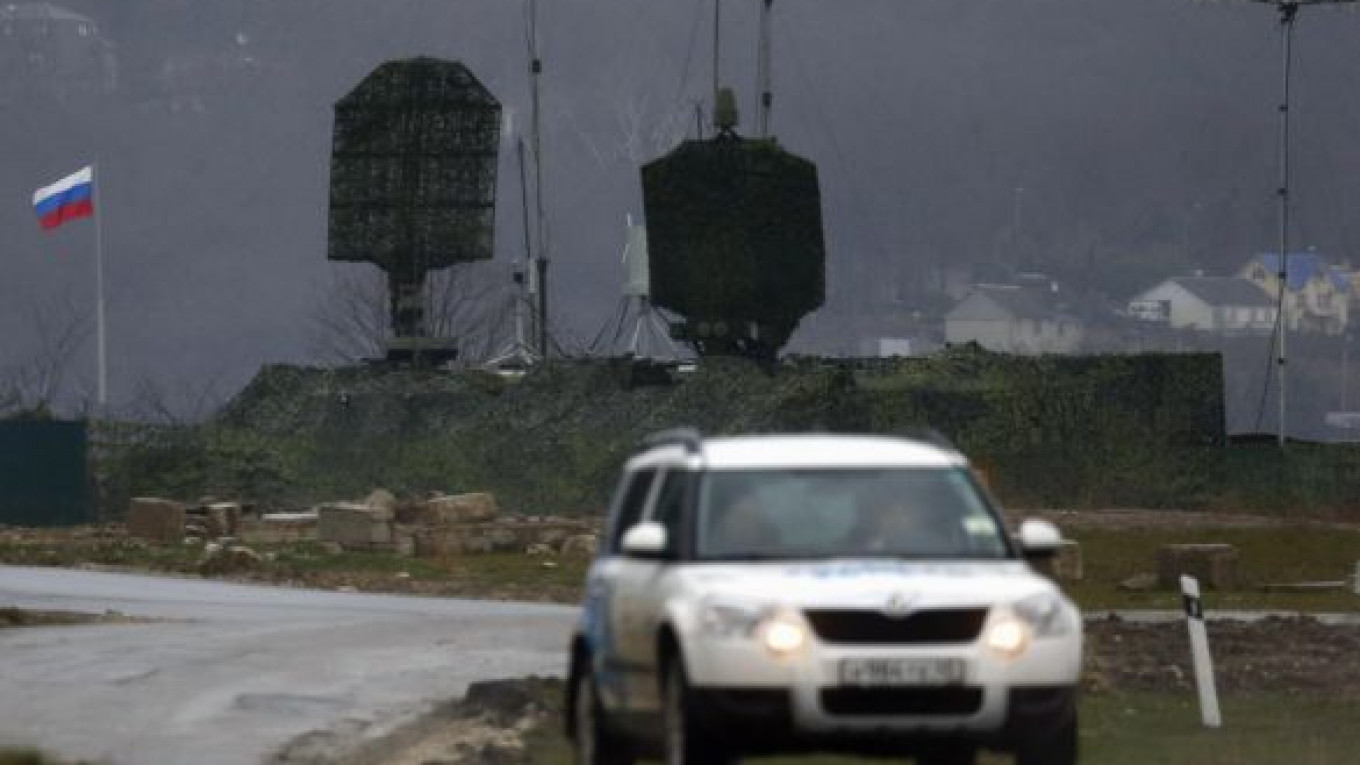BEIJING — China is confident that Russia will be able to guarantee security at next month's Winter Olympics in Sochi, officials said Tuesday.
To ease fears over possible breaches of security, President Vladimir Putin has ordered safety measures beefed up nationwide after 34 people were killed last month in bombings in Volgograd, another city in southern Russia.
While about 37,000 Russian personnel are providing security in the Sochi area, the U.S. in particular has expressed concern about the security situation.
The U.S. military said on Monday that air and naval assets, including two ships in the Black Sea, would be made available if needed during the Sochi Winter Olympics in support of Russia, which faces militant threats to disrupt the Games.
The Pentagon said U.S. military commanders were "conducting prudent planning and preparations" should American support be required during the Winter Olympics.
"Air and naval assets, to include two Navy ships in the Black Sea, will be available if requested for all manner of contingencies in support of — and in consultation with — the Russian government," Pentagon spokesman Rear Admiral John Kirby said in a statement.
The Pentagon statement came the same day that two men said by Islamist militants to have carried out suicide attacks in southern Russia appeared in a video donning explosive belts and warning President Vladimir Putin to expect a "present" at the Sochi Winter Olympics from fighters following after them.
Reuters reported on Sunday that U.S. military and intelligence officials have been studying contingency plans for evacuating Americans from the Games in case of a crisis.
But U.S. officials have concluded there would be major obstacles to mounting a large-scale effort by the military or other U.S. government resources to evacuate Americans from Sochi, said a source familiar with Obama administration debates.
The most formidable roadblock U.S. officials have discussed regarding contingency plans for Sochi is that Russian authorities have historically been reluctant to allow foreign military forces, especially those of the U.S., on Russian territory.
The State Department has warned Americans planning to attend the Games to be vigilant about their security because of potential terrorist threats.
Owing to Sochi's location and the formidable security measures Russian authorities have put in place at the site, most U.S. intelligence experts say any attacks during the Olympics are most likely to occur at places other than Sochi.
China, though, is completely confident that the games will be secure, Deputy Foreign Minister Cheng Guoping told reporters in Beijing.
"China has complete faith that Russia has the ability to ensure the security of the Sochi Winter Olympics. I believe these games will be successful with this tight security," Cheng said.
"China has been in close touch and has coordinated with Russia about this."
Chinese President Xi Jinping is attending the opening ceremony of the Feb. 7 to 23 Winter Olympics in a show of support for Putin, who has staked his political prestige on the success of the Games.
Xi's decision to attend is a positive development for Putin, after U.S. President Barack Obama and his German counterpart Joachim Gauck both said they would not travel to Russia for the Games.
China is not a traditional winter sports powerhouse, winning only five gold medals at the 2010 Games in Vancouver, and deputy sports minister Yang Shu'an said China was only a "middle" country in this field.
China has won a total of nine gold medals at Winter Games, compared with 201 at the Summer Olympics.
"Of the 98 competitions at Sochi, about one-third of them we do not yet do in China. There is a problem of imbalance and a lack of popularity for winter sports in China," Yang added.
"We do not have a figure for the number of medals we want to win. We just want to encourage our athletes to work hard and go all out to get them," he added.
The Sochi Games are the 22nd Winter Olympics and will run from Feb. 7 to 23.
The Chinese cities of Beijing and Zhangjiakou are jointly bidding for the 2022 Winter Olympics, though China has so far given few details and doubts have been cast by northern China's persistent smog crisis.
A Message from The Moscow Times:
Dear readers,
We are facing unprecedented challenges. Russia's Prosecutor General's Office has designated The Moscow Times as an "undesirable" organization, criminalizing our work and putting our staff at risk of prosecution. This follows our earlier unjust labeling as a "foreign agent."
These actions are direct attempts to silence independent journalism in Russia. The authorities claim our work "discredits the decisions of the Russian leadership." We see things differently: we strive to provide accurate, unbiased reporting on Russia.
We, the journalists of The Moscow Times, refuse to be silenced. But to continue our work, we need your help.
Your support, no matter how small, makes a world of difference. If you can, please support us monthly starting from just $2. It's quick to set up, and every contribution makes a significant impact.
By supporting The Moscow Times, you're defending open, independent journalism in the face of repression. Thank you for standing with us.
Remind me later.






